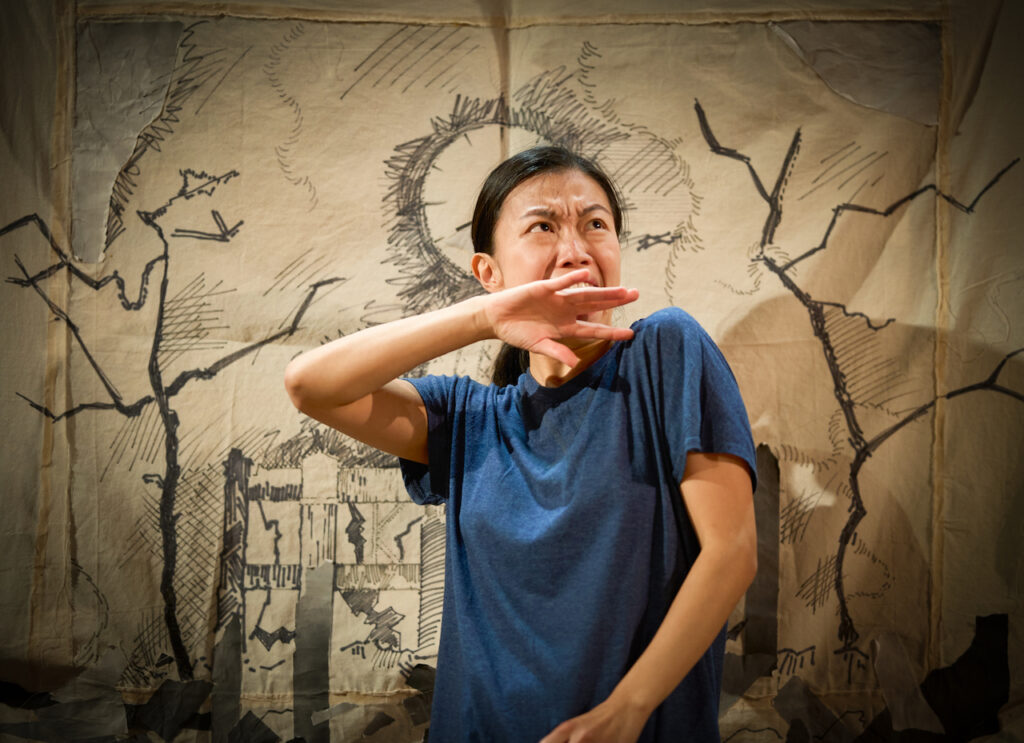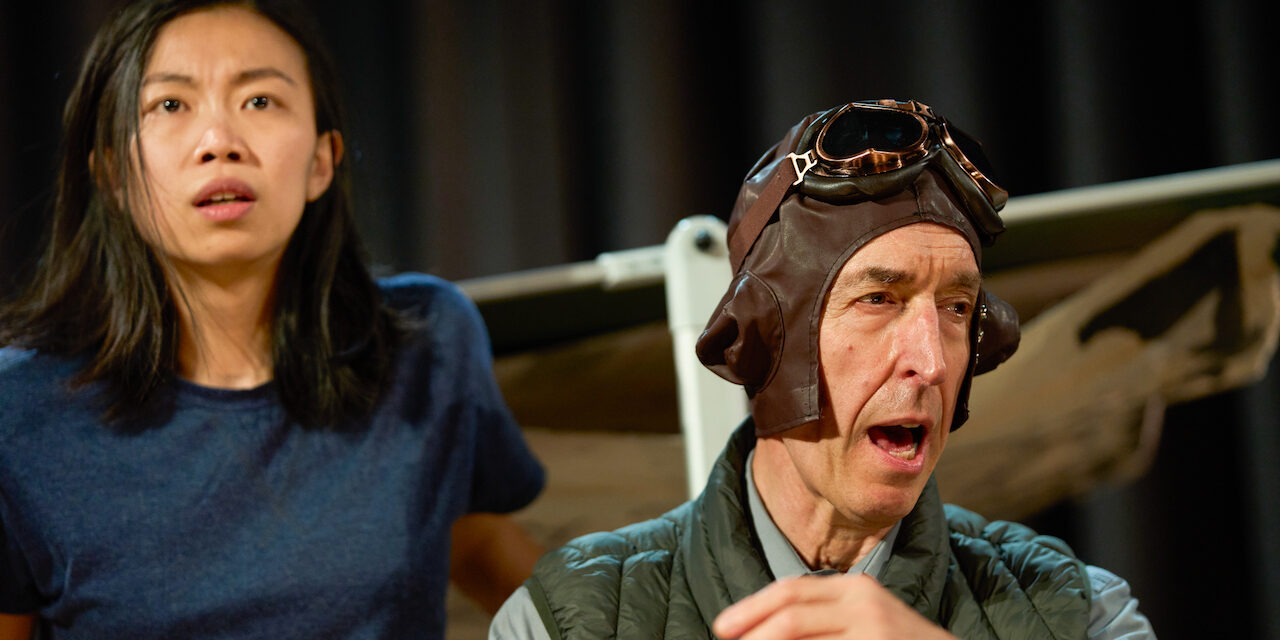
4 – 5 June
“Human history becomes more and more a race between education and catastrophe.”
In this quote from H.G.Wells he is urging that mankind learn from its history. Arguably, over the last few decades, that race has been speeding up and so it is entirely appropriate that works like this one by Michael Mears remind us of the dire consequences of failing to learn those lessons lest the ‘mistake’ be repeated with unimaginably worse consequences for mankind as a whole.
The title, The Mistake, is of course meant ironically and is taken from a quote by Admiral Halsey who complained that it (the bomb) was a ‘toy’ of the scientists and should never had been dropped. The blame game, to’ing and fro’ing between scientists, the military and politicians started as soon as the realisation of what had happened and its moral implications became evident. One senior officer in the military commenting that it was ethically no better than an act of barbarism in the Dark Ages.
Michael Mears’ play takes us back to the science underpinning the creation of the first atomic bomb and the work of Hungarian physicist, Leo Szilard who fled Berlin during the rise of the Nazis, ending up in America where he solved one of the problems of controlling nuclear chain reactions. His contribution to the science behind the Manhattan project is delivered by Mr. Mears as a quasi lecture. The cold science is juxtaposed with the diary entries of Shigeko (Riko Nakazono), a survivor of the bomb.
The resulting feel of the play is thus pedagogic with elements of narrative drawn from experience. This is intensified when Szilard, horrified at the results of his discoveries, becomes a passionate advocate for nuclear arms control. The descriptions of some of the after effects of the dropping of the bomb add urgency to his appeals.
However a worthy subject does not automatically translate into good drama. The constant change of focus between the efforts of Szilard to engage his fellow scientists in the politics of nuclear physics on the one hand, and the graphic realities of a nuclear inferno, though interesting and uncomfortable are not in themselves dramatic and do little to draw us in to either story. Ultimately the show tries to span too much material, falling between two potentially powerful themes and so stalls in the troubled minds of the two protagonists. In short we become passive recipients of information without becoming fully emotionally engaged. Given the importance of the subject to all of us it remains an opportunity unfulfilled.
★★★☆☆ Graham Wyles, 5th June 2025
Photography credit: Simon Richardson


